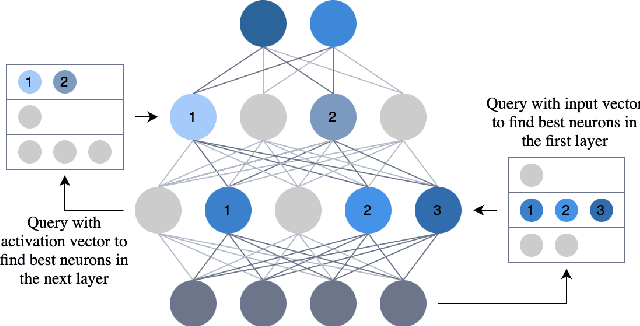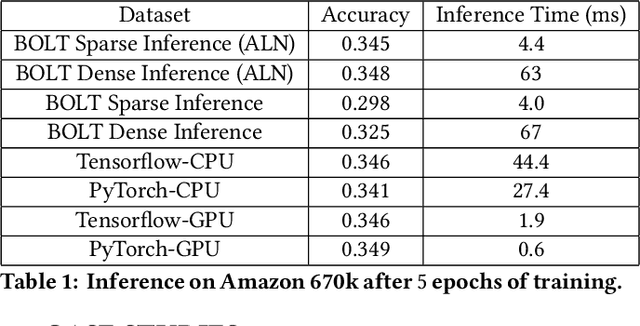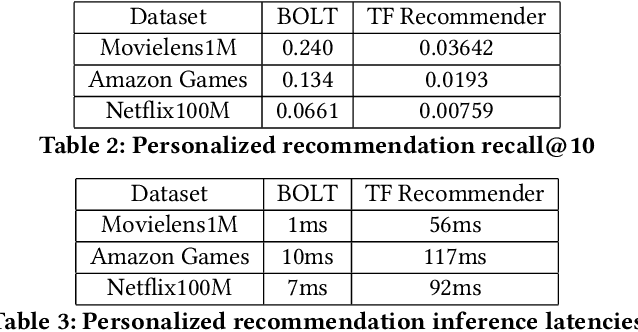Benjamin Meisburger
Heterogeneous federated collaborative filtering using FAIR: Federated Averaging in Random Subspaces
Nov 03, 2023



Abstract:Recommendation systems (RS) for items (e.g., movies, books) and ads are widely used to tailor content to users on various internet platforms. Traditionally, recommendation models are trained on a central server. However, due to rising concerns for data privacy and regulations like the GDPR, federated learning is an increasingly popular paradigm in which data never leaves the client device. Applying federated learning to recommendation models is non-trivial due to large embedding tables, which often exceed the memory constraints of most user devices. To include data from all devices in federated learning, we must enable collective training of embedding tables on devices with heterogeneous memory capacities. Current solutions to heterogeneous federated learning can only accommodate a small range of capacities and thus limit the number of devices that can participate in training. We present Federated Averaging in Random subspaces (FAIR), which allows arbitrary compression of embedding tables based on device capacity and ensures the participation of all devices in training. FAIR uses what we call consistent and collapsible subspaces defined by hashing-based random projections to jointly train large embedding tables while using varying amounts of compression on user devices. We evaluate FAIR on Neural Collaborative Filtering tasks with multiple datasets and verify that FAIR can gather and share information from a wide range of devices with varying capacities, allowing for seamless collaboration. We prove the convergence of FAIR in the homogeneous setting with non-i.i.d data distribution. Our code is open source at {https://github.com/apd10/FLCF}
BOLT: An Automated Deep Learning Framework for Training and Deploying Large-Scale Neural Networks on Commodity CPU Hardware
Mar 30, 2023



Abstract:Efficient large-scale neural network training and inference on commodity CPU hardware is of immense practical significance in democratizing deep learning (DL) capabilities. Presently, the process of training massive models consisting of hundreds of millions to billions of parameters requires the extensive use of specialized hardware accelerators, such as GPUs, which are only accessible to a limited number of institutions with considerable financial resources. Moreover, there is often an alarming carbon footprint associated with training and deploying these models. In this paper, we address these challenges by introducing BOLT, a sparse deep learning library for training massive neural network models on standard CPU hardware. BOLT provides a flexible, high-level API for constructing models that will be familiar to users of existing popular DL frameworks. By automatically tuning specialized hyperparameters, BOLT also abstracts away the algorithmic details of sparse network training. We evaluate BOLT on a number of machine learning tasks drawn from recommendations, search, natural language processing, and personalization. We find that our proposed system achieves competitive performance with state-of-the-art techniques at a fraction of the cost and energy consumption and an order-of-magnitude faster inference time. BOLT has also been successfully deployed by multiple businesses to address critical problems, and we highlight one customer deployment case study in the field of e-commerce.
 Add to Chrome
Add to Chrome Add to Firefox
Add to Firefox Add to Edge
Add to Edge